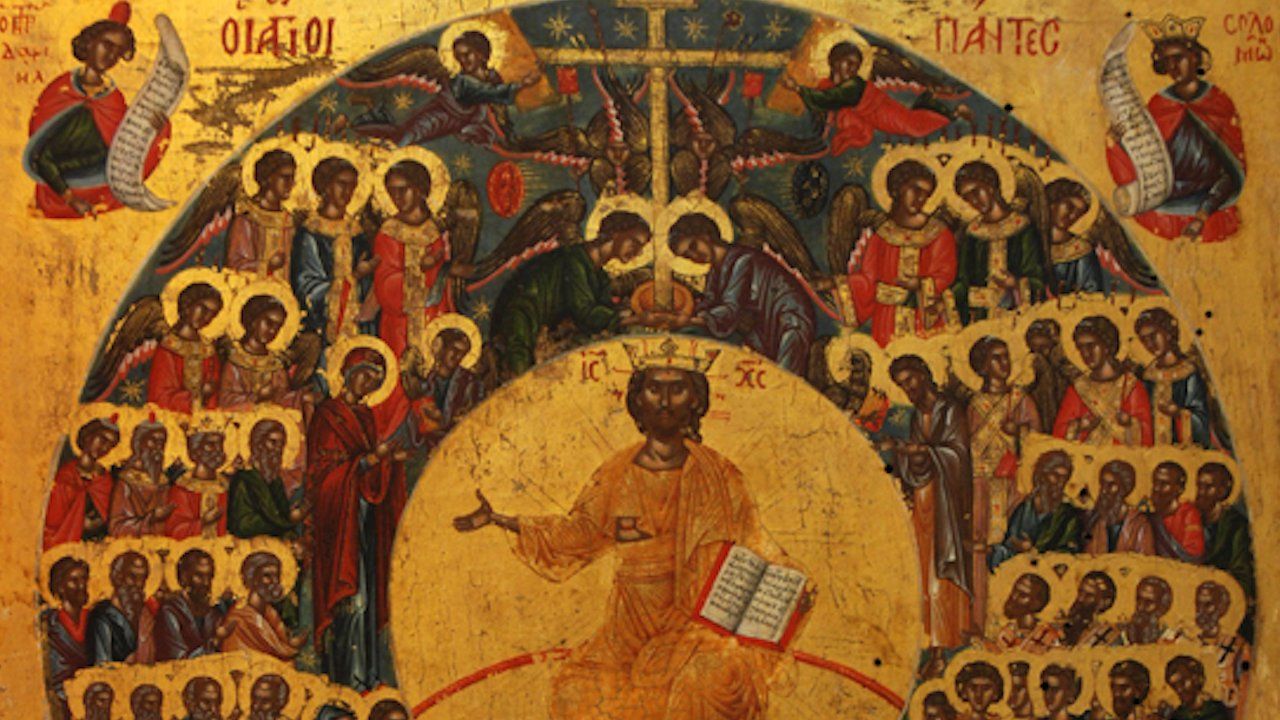EACH FATHER, in his own personal way, reveals the same Truth. Thus we have a St Basil the Great who speaks in a kingly tone, with grandeur and sobriety, transmitting the message of the Kingdom.
We have a Chrysostom: like the nightingale that vibrates all over and lights up the whole night with the metallic sheen of its voice, so this inspired saint participates totally in the message he preaches; the little tabernacle of his body pulsates, and the crowds are divinely stirred down the ages. He sees the Lord, the God-man, in His Passion and in His Resurrection. He describes Him lifted up outside the city, outside the walls, on a high scaffold, so as to cleanse the air, the whole creation and the inhabited earth. Then he comes to his paschal Catechetical Oration in which he goes beyond the present age and makes everyone hear already today the ineffable words of the age to come. And amidst the great explosion of paschal light where the laws of nature are done away with, he calls all to the joy of the Lord.
We have Gregory, the theologian and poet, with his dense prose and his god-inspired eloquence. He is speaking on the Nativity, and he talks about other things. He formulates certain expressions which show the depth of his theology and his knowledge of what man is. These terse paragraphs (Hom. 38, On Nativity/Theophany, 7-13), taking in the mystery of creation and salvation, describe the essence of the Nativity. They reveal the truth of our being. They throw light on the mystery of the Incarnation of God. And he puts the same words, without change or addition, into his homily on Easter (Hom. 45, 3-9). Because he wants to be original as a poet, he says exactly the same thing. For in the realm of truth, repetition is surprise.
The theological writing of Gregory of Nyssa, with its god-inspired philosophizing and its clarity, is the clearest possible portrayal of the man who has formulated the vital questions. He has found the answer. He has overcome the obstacles. He has “crossed the Alps.” He has had experience of ravines becoming bridges for him and mountains becoming plain, so that he can progress unhindered. He hears God’s answer “through what He refuses’ (Life of Moses
2.232), through the questions which God refuses to answer. And the silence and failure to answer on God’s part are a clear explanation which enlightens Gregory and reassures him.
We have Maximus, the confessor who, true to his name, is indeed “greatest,” who in his liturgical experience comes close to “the God of ineffable and unseen mysteries” (Liturgy of the Presanctified Gifts). In few words, he speaks of things without end. And within the universe of his theology, you have the sense that there are stars of truth whose light has not yet reached your senses. He is the great theological lightening flash in history, who illuminates, liberates, and unites all things. he is the justification for the desperate longing of those who lived before him, who speak in the terse and complicated phraseology of Heraclitus.
The Fathers saw the true light. They gained spiritual health. They were freed from themselves. They enjoyed the freedom of the age to come. They are satiated with grace. They trust in God’s love. They have seen what end everything is leading to. They have reached the point of saying consciously: “Lord, now lettest Thou thy servant depart in peace” (Lk. 2:29).
[…] They believe, experience, and know that God loves every creature He has made. He loves the whole person, and his freedom. And it is of great importance to approach God in freedom, when your time comes. It is important to take a risk at some point in taking your personal step. To dare to express your objections or doubts, as did the Apostle Thomas. To confess the truth. To hear the Good Shepherd calling you by name. To cross the threshold of fear and hesitation. To tear up the contract of slavery. To go forward in freedom. And to take the next step: voluntarily to enslave yourself to God. To say: My God, I have no confidence in myself. My true self is You, who created me, who love me and who call me to the dangerous adventure of freedom so that I can find my soul by deliberately losing it. This is why I ask and want Your will to be done, and not my own.
Then you begin to tread different ground; to fly on the wings of the wind of the Spirit. And divine grace cares for you as a hen her chicks.
This is the way one starts off. One crosses oneself and sets out, giving oneself over to the divine will. And God gives grace and joys, without our deserving it. For in every age “He has not left Himself without witness, for He does good” (cf. Acts 14:17); He has always had His saints. “He has not left Himself without witness” to any human being; each one of us has an inner experience of His love.
~Archimandrite Vasileios, excerpt from “The Light of Christ Shines upon All” through All the Saints
;
available at Eighth Day Books
*Register for the
Eighth Day Symposium
("For I Am Holy: The Command to Be Like God") before regular registration rates begin on January 7.










